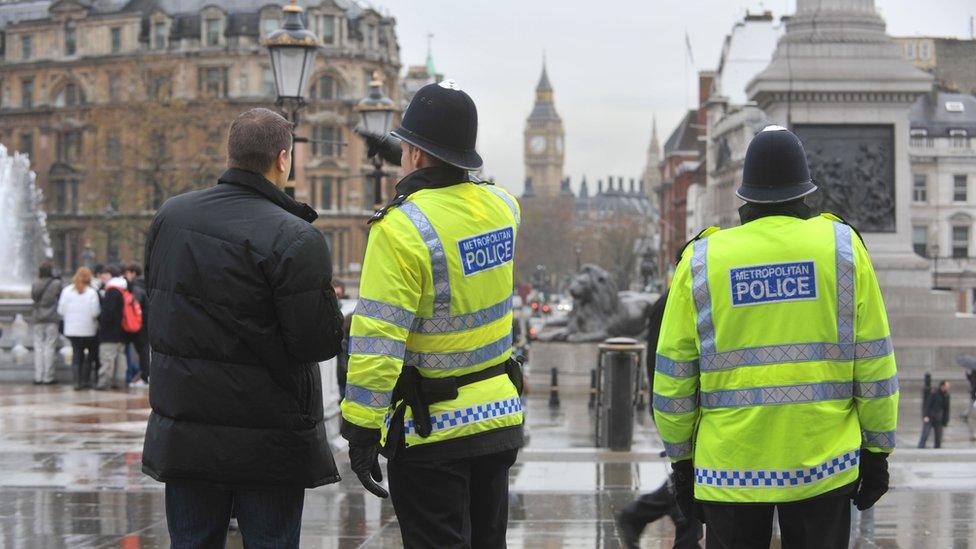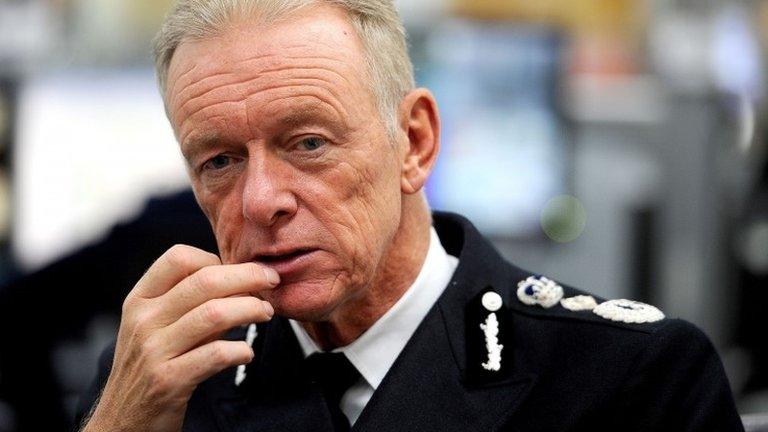Met Police announce borough shake-up areas
- Published

The Metropolitan Police Service needs to save £400m in the next four years
The boroughs which will merge as part of a shake-up at the Metropolitan Police have been announced.
From January, the Met is testing out a restructure which will see it move from borough-based policing to larger basic command units (BCUs).
The trial will see Barking and Dagenham, Redbridge and Havering, and Camden and Islington boroughs merge.
The Met said it would not mean any station closures or job cuts.
But the Metropolitan Police Federation said it would be surprised if this did not happen because "otherwise what's the point of what they are trying to achieve?"
Scotland Yard said it had to save £400m in the next four years.
'What victims need'
It said the new system would bring together "management of neighbourhoods, response, investigation and protection of vulnerable people, including child protection, victims of sexual abuse and domestic abuse".
Each BCU will be led by an interim commander, a chief superintendent and four superintendents who will each be responsible for neighbourhoods, response, investigation and protecting vulnerable people.
People, buildings, technology and vehicles will be shared across the boroughs within the BCU.
Deputy Assistant Commissioner Mark Simmons, who is responsible for the BCU test, said: "Change is important for the Met to remain operationally effective in the changing policing landscape.
"We want to invest more into neighbourhood policing and protect vulnerable people across London as well as make sure we are able to deal with predicted increases in demand.
"We also want to implement a way of investigating crime that is more focused on what victims need and can be even more effective in tackling serious offending."
The Deputy Mayor for Policing and Crime, Sophie Linden, said the Met wanted to reduce the amount it spent on management so it could "maximise the amount spent on operational policing".
A spokesman for the Metropolitan Police Federation said officers had "massive concerns" about the scheme, particularly over fatigue and increasing workloads.
- Published16 November 2016
